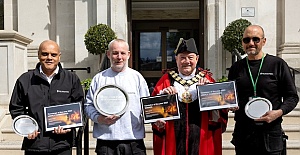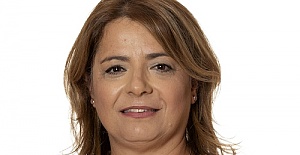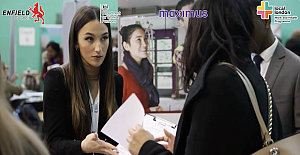A baby girl in Mississippi who was born with HIV has been cured after very early treatment with standard HIV drugs, U.S. researchers reported on Sunday, in a potentially ground-breaking case that could offer insights on how to eradicate HIV infection in its youngest victims. The child's story is the first account of an infant achieving a so-called functional cure, a rare event in which a person achieves remission without the need for drugs and standard blood tests show no signs that the virus is making copies of itself. More testing needs to be done to see if the treatment would have the same effect on other children, but the results could change the way high-risk babies are treated and possibly lead to a cure for children with HIV, the virus that causes AIDS. "This is a proof of concept that HIV can be potentially curable in infants," said Dr. Deborah Persaud, a virologist at Johns Hopkins University in Baltimore, who presented the findings at the Conference on Retroviruses and Opportunistic Infections in Atlanta. The child's story is different from the now famous case of Timothy Ray Brown, the so-called "Berlin patient," whose HIV infection was completely eradicated through an elaborate treatment for leukemia in 2007 that involved the destruction of his immune system and a stem cell transplant from a donor with a rare genetic mutation that resists HIV infection. "We believe this is our Timothy Brown case to spur research interest toward a cure for HIV infection in children," Persaud said at a news conference.
Instead of Brown's costly treatment, however, the case of the Mississippi baby, who was not identified, involved the use of a cocktail of widely available drugs already used to treat HIV infection in infants.
When the baby girl was born in a rural hospital in July 2010, her mother had just tested positive for HIV infection. Because her mother had not received any prenatal HIV treatment, doctors knew the child was at high risk of infection. They transferred her to the University of Mississippi Medical Center in Jackson, where she came under the care of Dr. Hannah Gay, a pediatric HIV specialist.
Because of her risk, Dr. Gay put the infant on a cocktail of three HIV-fighting drugs - zidovudine (also known as AZT), lamivudine, and nevirapine - when she was just 30 hours old. Two blood tests done within the first 48 hours of the child's life confirmed her infection and she was kept on the full treatment regimen, Persaud told reporters at the conference.
In more typical pregnancies, when an HIV-infected mother has been given drugs to reduce the risk of transmission to her child, the baby would only have been given a single drug, nevirapine.
Researchers believe use of the more aggressive antiretroviral treatment when the child was just days old likely resulted in her cure by keeping the virus from forming hard-to-treat pools of cells known as viral reservoirs, which lie dormant and out of the reach of standard medications. These reservoirs rekindle HIV infection in patients who stop therapy, and they are the reason most HIV-infected individuals need lifelong treatment to keep the infection at bay.
US baby born with HIV apparently
A baby girl in Mississippi who was born with HIV has been cured after very early treatment
04 Mart 2013 Pazartesi 07:22
reads.
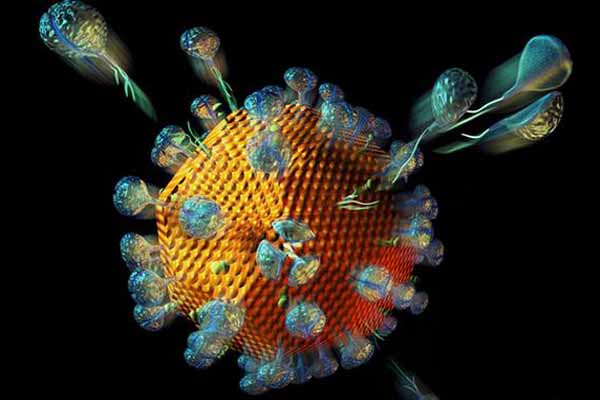



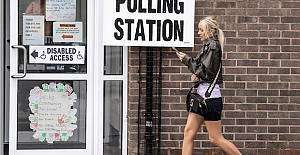 Advice for Enfield residents ahead of the General Election
Advice for Enfield residents ahead of the General Election Sunak promises tax cuts, economic stability, Conservative Party election manifesto
Sunak promises tax cuts, economic stability, Conservative Party election manifesto Ertan Karpazli, an independent MP candidate for the Enfield North constituency
Ertan Karpazli, an independent MP candidate for the Enfield North constituency Rishi Sunak announces a general election in a statement outside Downing Street
Rishi Sunak announces a general election in a statement outside Downing Street Residents of Spanish island of Mallorca launch initiative to thank tourists amid protests over mass tourism
Residents of Spanish island of Mallorca launch initiative to thank tourists amid protests over mass tourism Srebrenica Remembered, Lessons for Justice and Peace! YEE London held a reflective event
Srebrenica Remembered, Lessons for Justice and Peace! YEE London held a reflective event British Premier Keir Starmer to reset UK-EU relations with high-profile meetings
British Premier Keir Starmer to reset UK-EU relations with high-profile meetings Voters head to polls for UK general election
Voters head to polls for UK general election The Swiss official will take charge of the match between Real Madrid and Atalanta in Warsaw
The Swiss official will take charge of the match between Real Madrid and Atalanta in Warsaw Applications are now open for Walking and Cycling Grants London until 9 September 2024
Applications are now open for Walking and Cycling Grants London until 9 September 2024  Two Circles also appointed as exclusive media sales agency for UEFA Women’s Champions League
Two Circles also appointed as exclusive media sales agency for UEFA Women’s Champions League  England manager Gareth Southgate has resigned two days after defeat by Spain
England manager Gareth Southgate has resigned two days after defeat by Spain Joyce and Snell's planning application gets stamp of approval
Joyce and Snell's planning application gets stamp of approval The amount of bounce back loans fully repaid is just %13
The amount of bounce back loans fully repaid is just %13 Petrol prices higher than they should be, says RAC
Petrol prices higher than they should be, says RAC UEFA and Mastercard renew UEFA Champions League partnership
UEFA and Mastercard renew UEFA Champions League partnership





